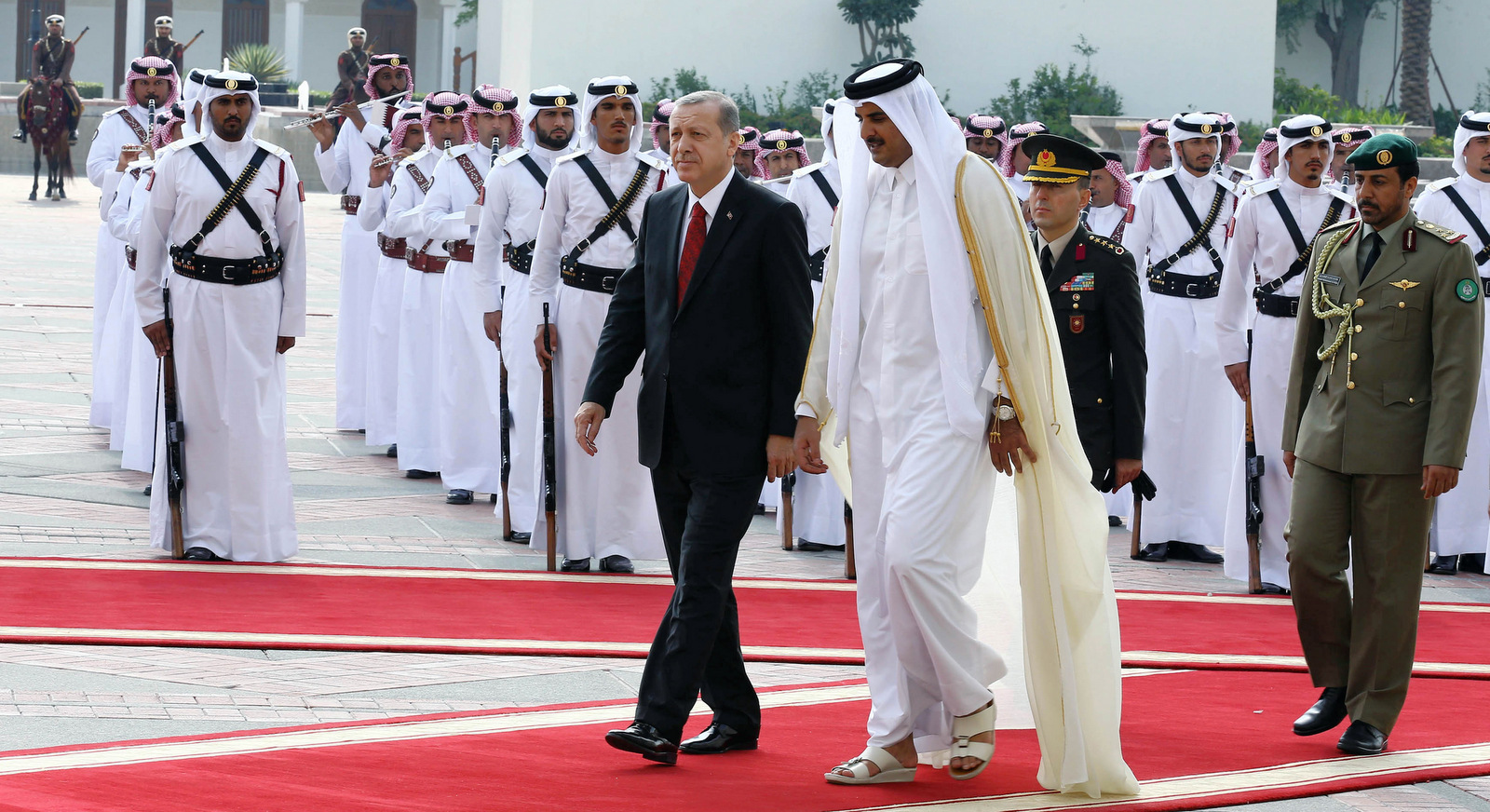
Turkey approved a bill allowing expedited troop deployment to its base in Qatar. (AP/Yasin Bulbul,)
Yesterday’s news that Saudi Arabia has issued an ultimatum to Qatar, listing ten demands among which that Qatar end all ties with the Muslim Brotherhood and Hamas, has prompted a dramatic response by the small Gulf nation, and according to a just released report by Arabic CNN (and confirmed locally) US officials have said they have observed increased Qatari military activity as the country placed its forces “on the highest state of alert” over fears of an imminent military incursion.
The sources add that the Qatari military has brought up 16 Leopard tanks out of storage in Doha in preparation for a potential military incursion by surrounding Gulf states. Furthermore, the Qatari Ministry of Defense reportedly also sent a letter to Saudi, UAE and Bahraini governments, saying they would fire on any naval ships from those countries that enter into its waters, a US official said. US officials have said the situation in Qatar has not affected US military operations and security in Qatar.
The escalation comes at the same time as president Donald Trump allegedly changed course on Qatar, a day after praising a move by other Gulf nations to sever diplomatic relations with Doha, which hosts a US military base crucial to the fight against ISIS.
CNN reports that in a phone call with the Qatari Emir, Trump “extended an olive branch,” offering to help the parties resolve their differences by inviting them to a White House meeting if necessary.
In a description of the Wednesday call, the White House said Trump “emphasized the importance of all countries in the region working together to prevent the financing of terrorist organizations and stop the promotion of extremist ideology.”
Trump’s latest flip flop echoed that of his secretaries of Defense and State, who emphasized Tuesday the need for Gulf unity and the importance of the US partnership with Qatar, home to the Al Udeid Air Base, the main regional center for air missions against ISIS.
Separately, the WSJ validated yesterday‘s reports about a Saudi ultimatum, reporting late on Wednesday that leading Arab states are drawing up a list of demands that Qatar must meet to return to normal diplomatic and economic relations, including steps to significantly scale back the Al Jazeera media network. Oddly enough, there was no mention of “Russian hackers.”
Saudi Arabia, the United Arab Emirates, Egypt and their allies are also seeking guarantees that Qatar’s government will stop its alleged financing of Middle East extremist groups and sever relations with the political leadership of the Muslim Brotherhood, a global Islamist movement, according to these officials.
Senior U.S. officials said Mr. Trump told the Arab monarchs he is prepared to mediate the dispute between the Arab states, some of whom host major American military installations. But the Trump administration stressed it needed a clear list of grievances to pass on to Qatar’s leadership, and that Washington wouldn’t necessarily endorse them.
These Arab and U.S. officials said this official list of demands is being compiled and could be completed in the coming days. Qatar’s ambassador to Washington, Meshal bin Hamad Al Thani, said in an interview on Wednesday that his government still didn’t know the specifics behind these Arab states’ decision to sever ties. He stressed that Doha is open to the Trump administration trying to mediate a diplomatic resolution.
“Until now, there have been no clear requests,” said Mr. Al Thani, a member of Qatar’s ruling family. “We are working toward de-escalation.” Saudi and Emirati officials have publicly accused Qatar of channeling funds to al Qaeda-linked groups in Syria and Yemen and providing a diplomatic safe-haven for the Muslim Brotherhood. Ambassador Al Thani denied Qatar knowingly has provided funding to any terrorist organizations. He said Doha is willing to take additional actions.
The reports come hours after Turkey, a government friendly to Qatar, approved a bill allowing expedited troop deployment to its base in Qatar. As reported earlier, the bill’s passage would allow Turkish troops to be deployed in Qatar and approve an accord between the two countries on military training cooperation.
The end of the GCC?
As we reported last night, speaking to Al Jazeera, analyst Giorgio Cafiero of Gulf State Analytics, a geopolitical risk consultancy based in Washington, DC, said: “I think the Kuwaitis as well as Omanis … fear the prospects of these tensions escalating in ways which could undermine the interest of all six members of the GCC.
“There are many analysts who believe that a potential break-up of the GCC has to be considered right now. If these countries fail to resolve their issues and such tensions reaches new heights, we have to be very open to the possibility of these six Arab countries no longer being able to unite under the banner of one council,” said Cafiero.
He added that if tension escalates, there could be a “military confrontation”.

